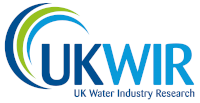Review into plastic pollution shows how best to tackle it through source control
13/02/2023
The research began with a literature review to find out the quantity and types of plastics collected at WwTW inlets and leaving CSOs. It then identified where they were originating from and how best to control them through source control measures, including policy interventions, behaviour change campaigns and voluntary industry actions.
What we did
A brainstorming session was held with the Project Steering Group (PSG), to obtain a high-level overview of their understanding of the main problem plastic items received, pathways into wastewater treatment systems and their impact.
Then a literature review was conducted of existing publications and information on plastics received at WwTWs and CSOs and sewage-related debris (SRD) found in the environment. The review focussed on information from the UK and Ireland as well as relevant international examples. Information on the negative impacts of these items was also gathered.
Source control measures including policy interventions, behaviour change campaigns and voluntary industry actions, were then longlisted and prioritised. Feedback on these was gathered in a stakeholder workshop involving the PSG, policymakers, conservation organisations and retailers.
What we found and recommended
Wet wipes were identified as the most significant problem item entering the wastewater system, followed by period products, cigarette butts, and plastic wrappers.
Wet wipes are identified as particularly problematic. Up to 2.9 billion are flushed down toilets each year, making them responsible for around 94% of blockages in the sewerage system. Nappies and incontinence pads were also identified as two recognised problem items on which less data is available.
Twelve policy interventions are recommended, covering changes to labelling, changing the way the Fine to Flush standard is used for marketing purposes, introducing extended producer responsibility schemes, bans, grants/ subsidies, and public infrastructure changes.
What do the findings mean?
The findings provide a useful summary of the most problematic plastic items and the impacts they have. The evidence-based recommended interventions can inform decisions by government and are a useful toolbox for those advocating for change. The suggested behaviour change campaigns can be used to inform more impactful future campaigns, while suggestions for action by industry could be rolled out sooner on a voluntary basis.
The full report - Plastics received by the water industry and how best to tackle them through source control (22/WW/06/12).
